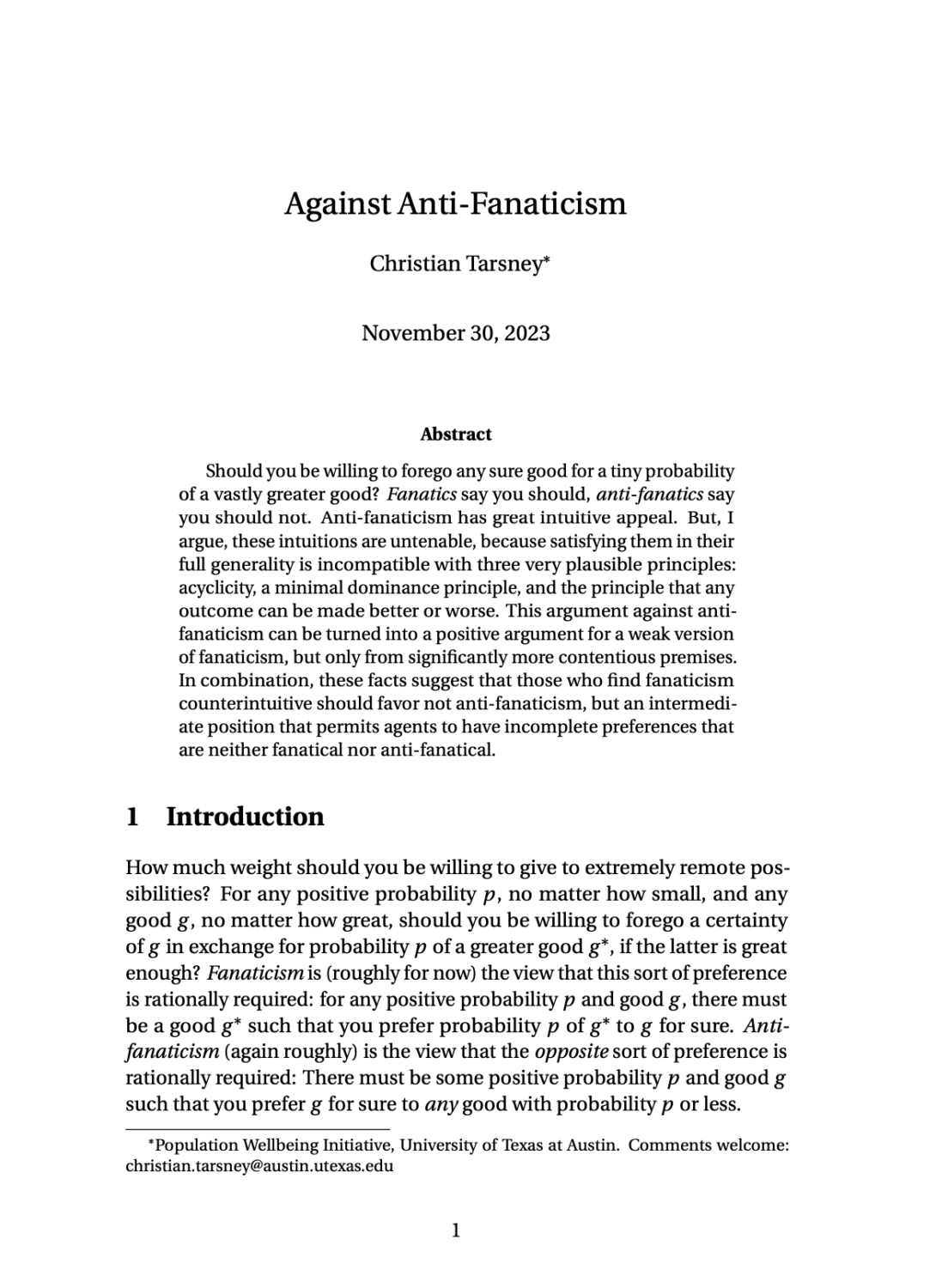Against Anti-Fanaticism
Christian Tarsney (Population Wellbeing Initiative, University of Texas at Austin)
GPI Working Paper No. 15-2023, published in Philosophy and Phenomenological Research
Should you be willing to forego any sure good for a tiny probability of a vastly greater good? Fanatics say you should, anti-fanatics say you should not. Anti-fanaticism has great intuitive appeal. But, I argue, these intuitions are untenable, because satisfying them in their full generality is incompatible with three very plausible principles: acyclicity, a minimal dominance principle, and the principle that any outcome can be made better or worse. This argument against anti-fanaticism can be turned into a positive argument for a weak version of fanaticism, but only from significantly more contentious premises. In combination, these facts suggest that those who find fanaticism counterintuitive should favor not anti-fanaticism, but an intermediate position that permits agents to have incomplete preferences that are neither fanatical nor anti-fanatical.
Other working papers
What power-seeking theorems do not show – David Thorstad (Vanderbilt University)
Recent years have seen increasing concern that artificial intelligence may soon pose an existential risk to humanity. One leading ground for concern is that artificial agents may be power-seeking, aiming to acquire power and in the process disempowering humanity. A range of power-seeking theorems seek to give formal articulation to the idea that artificial agents are likely to be power-seeking. I argue that leading theorems face five challenges, then draw lessons from this result.
Longtermist institutional reform – Tyler M. John (Rutgers University) and William MacAskill (Global Priorities Institute, Oxford University)
There is a vast number of people who will live in the centuries and millennia to come. Even if homo sapiens survives merely as long as a typical species, we have hundreds of thousands of years ahead of us. And our future potential could be much greater than that again: it will be hundreds of millions of years until the Earth is sterilized by the expansion of the Sun, and many trillions of years before the last stars die out. …
Respect for others’ risk attitudes and the long-run future – Andreas Mogensen (Global Priorities Institute, University of Oxford)
When our choice affects some other person and the outcome is unknown, it has been argued that we should defer to their risk attitude, if known, or else default to use of a risk avoidant risk function. This, in turn, has been claimed to require the use of a risk avoidant risk function when making decisions that primarily affect future people, and to decrease the desirability of efforts to prevent human extinction, owing to the significant risks associated with continued human survival. …

